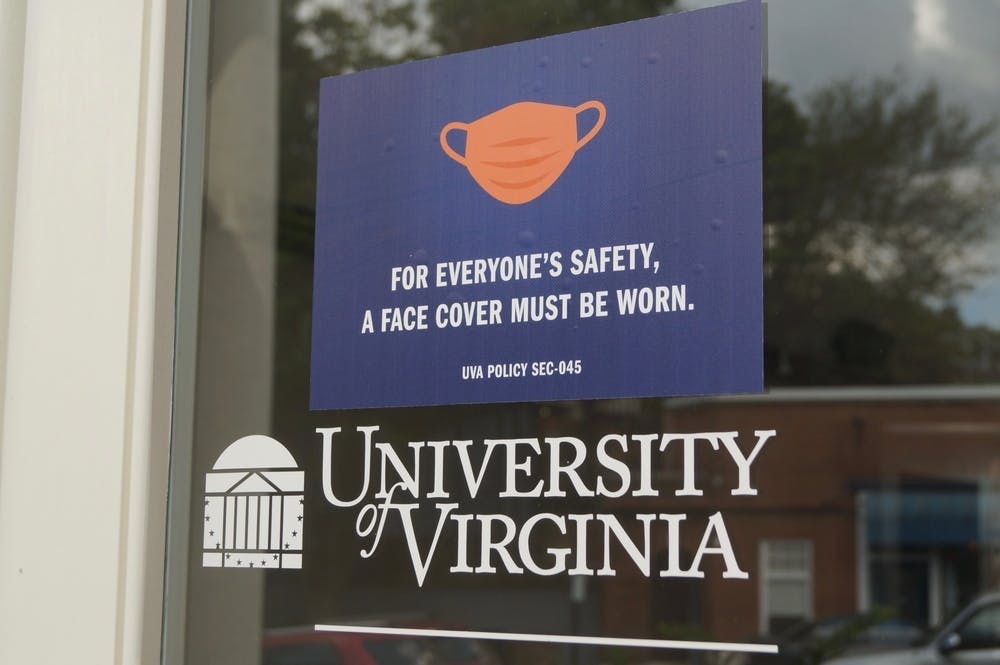In an eleventh-hour announcement Aug. 28, the University administration indicated that the fall semester would move forward as planned, with the few remaining in-person classes allowed to continue. Prior to that decision, several organizations on Grounds, including the Student Council, the Young Democratic Socialists of America and the newly-formed United Campus Workers of Virginia have demanded the University immediately shift to fully virtual learning and to cancel general move-in of the roughly 4,400 on-Grounds students who moved in this past week. Each new call to end in-person instruction predicts an unmitigated COVID-19 disaster akin to that of the University of North Carolina at Chapel Hill. As a result, each new call also reflects a cynical lack of faith in our community of trust. But the University’s plan for Return to Grounds has so far shown to be successful, with expanded testing initiatives already scheduled and little news of on-Grounds transmissions.
In times of adversity, the role of our leadership — including the Student Council executive board — is to support the University community in rising to the challenges presented before us. Instead, Student Council has embraced the defeatist attitudes of fringe groups that have no grip on the big-picture operational realities of the University. By consigning the fall semester to failure, these prophets of doom have failed to realize the impact of their statements on the wider student body. After all, why should the average undergraduate believe we can keep down infection numbers and preserve the safety of the community if our time-honored student government is already giving up? In times where Greek councils and the student body at-large are taking measures to support a successful return to Grounds, the Student Council has tragically abdicated its responsibility to “protect and improve the rights, opportunities, and quality of life of every student at the University of Virginia.”
This extends to the rest of us as well. The standard of conversation among returning students seems to take it as a given that classes will go totally virtual, and sooner rather than later. The more of us who truly believe that, the more likely we augur a self-fulfilling prophecy. Setting low expectations is not going to carry the University through this troubled period of its history. We should instead demand each and every one of us not have to relearn the lessons of UNC or of University of Notre Dame. We should strive to set the example for the first-years, many of whom have only just arrived in Charlottesville. Let us commit to holding each other accountable for any malfeasance, not hand-waving and blaming University officials for our own misdeeds. Instead of posting pessimistic memes on Reddit and giving up on our ability to make this year work, we need to ask what more can be done and whenever possible put forward our best efforts to accomplish those tasks.
Furthermore, moving to purely online instruction will not address the root cause of coronavirus spread among students and the wider Charlottesville community. With almost 18,000 pre-arrival tests completed and only a rough 4,400 students slated to live in University housing, there will remain over 10,000 students living off Grounds in the city of Charlottesville and Albemarle County, most of whom did not live here prior to matriculation at the University. At other colleges, the most-cited reason for disease spread has been off-campus social gatherings. Removing the policy of generally hosting students on Grounds would reduce University leverage over deviant individuals who come here and violate social gathering policies. After all, removing the tangible, academic reason for students to be in Charlottesville also allows the University to wash its hands of misconduct by its students here. Forcing students to leave, too, is untenable, with signed leases and rent payments already in full swing. Like it or not, closing in-person classes makes the possibility of outbreaks in Charlottesville more and more likely, not less. Students who pay rent have a legal right to live in their apartments and houses, and purely virtual learning leaves a great deal of flexibility for them to darty or hit the bars and clubs, to the detriment of our communal reputation and the people of Charlottesville. Certainly, we would do better to have strict safety protocols such as SEC-045 and the clearly communicated consequences of violating those expectations. I find it unlikely that the University would have felt the need to establish or enforce that policy were there not a resumption of at least some undergraduate in-person classes.
Establishing opt-out housing, as suggested by Student Council and YDSA, also fails to address issues that would disproportionately impact residents of on-Grounds housing. Should the University move to fully virtual instruction and release housing contracts on request, students whose only escape from toxic family situations was the vague presence of in-person instruction would be pressured to return home. Holding even the few classes currently scheduled to be in-person gives students a real reason to be here, while purely virtual instruction simply does not. Students with unstable family situations and controlling parents would of course be the first recalled home. On top of that, it still does nothing to control the off-Grounds population that composes the vast majority of present coronavirus infections.
I have seen firsthand that the student body can be great and can be good. This University can achieve, through reasoned policy and communal responsibility, a great many good things. But we must not absolve our peers of misconduct, or fatigue at the signs of limited student-to-student COVID-19 transmission. Please, for the sake of your peers, your friends, your classmates — trust the technology, trust the process and trust in each other to do our best.
Bilge Batsukh is an Opinion Columnist for The Cavalier Daily. He can be reached at opinion@cavalierdaily.com.
The opinions expressed in this column are not necessarily those of The Cavalier Daily. Columns represent the views of the authors alone.







